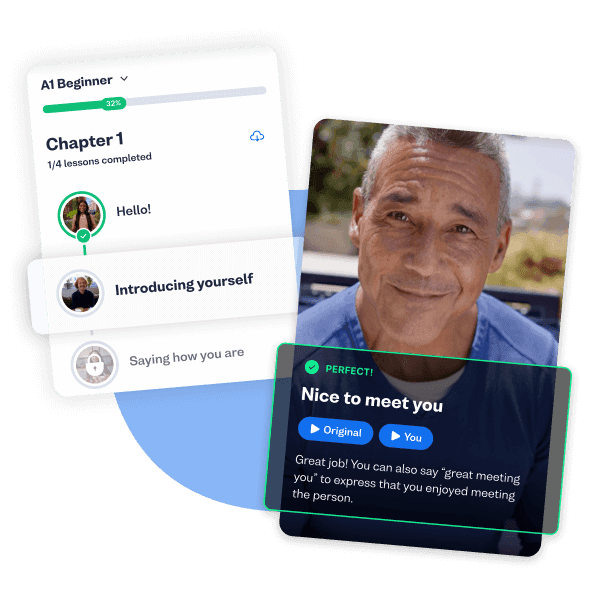I want to learn...
Author:

Barney Meekin
It takes time, patience and hard work to learn English vocabulary – it’s a huge challenge! But the rewards are well worth it. Improving your vocabulary can open up career opportunities or help you adapt to life in an English-speaking country. It can also make travel more enjoyable.
So how can you develop your English vocabulary effectively?
In this article, you’ll learn 12 top tips to help you learn vocabulary in English. And you’ll find out why Busuu is the best app for reviewing and remembering English words.
The benefits of building your English vocabulary
Improve your communication skills
Knowing lots of English words helps you express yourself. It helps you find the right words for the right situation so you always choose the clearest or most effective way to communicate your ideas. Finish Busuu’s Complete English and English for Business courses, and you’ll never be at a loss for words again.
Boost your confidence
Know that feeling when you can’t remember the word you need, you think your listeners are judging your language skills, and you lose control of your nerves? Yeah, it’s happened to all of us language learners. Building your English vocabulary can keep you out of this situation. It will give you the confidence to communicate in English.Be a success
A wide vocabulary helps you achieve your business, work or academic goals. You can understand complicated topics and materials, give persuasive presentations, engage in high-level discussions, and understand industry-specific words. Busuu’s English courses teach you the vocabulary you need to succeed in professional and academic situations.How to increase your vocabulary: 12 Top tips
1. Read regularly
Reading is a fantastic way to learn a language – and improving vocabulary is no different. Read different genres and styles like fiction, non-fiction, news articles and scientific journals. This way you’ll see a variety of styles and come across different words.
Finding suitable reading materials for language learners is a challenge. But luckily for you English learners, there’s so much out there.
For example, graded readers are one of the best resources for language learners. They’re adapted from novels or non-fiction books to be easy for language learners to read. And you can find them for every level – whether you’re a beginner or an advanced learner, there are graded readers that will be a big help to you.
Another place to find great reading materials is online. Blogs (check out the Busuu Blog), news sites, and social media are all places where you can find free materials to read. Just make sure you choose materials that are at a suitable level for you, at your current level or slightly above.
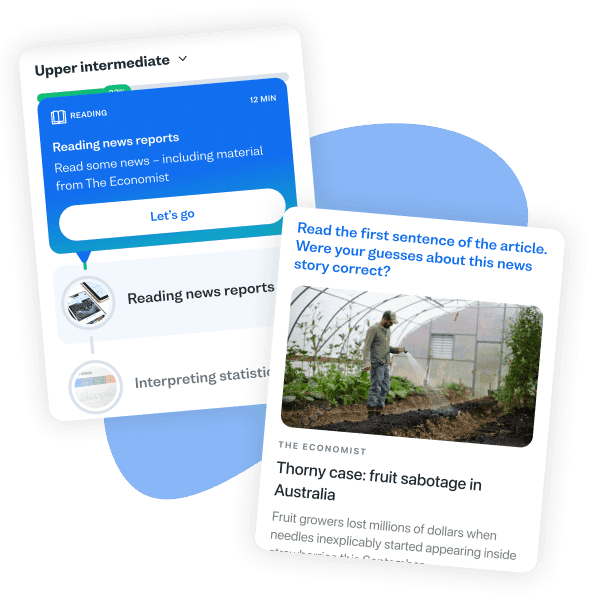
2. Think first, look it up second
Whenever you encounter a new word, don’t look it up in your dictionary right away. Spend a bit of time trying to guess its meaning from the context. Look at the words that come before and after. Think about the previous sentences and paragraphs. What were they talking about? Use this information to make an educated guess at what the word means.
Then use a dictionary to check your guess. Sure, it’s much easier to look up a word straight away. But guessing from context engages your brain. When you do look it up, be sure to learn its meaning and pronunciation and check out the example sentences. You can also look in a thesaurus for words with similar and opposite meanings to gain a deeper understanding.
3. Learn in context
Context is key. It changes what words mean and how they’re used. Learning words in context helps you understand how to use them correctly. Pay attention to words in sentences and different situations. Think about the similarities and differences. Of course, reading is a great way for you to see words in context. But so is audio content like podcasts.
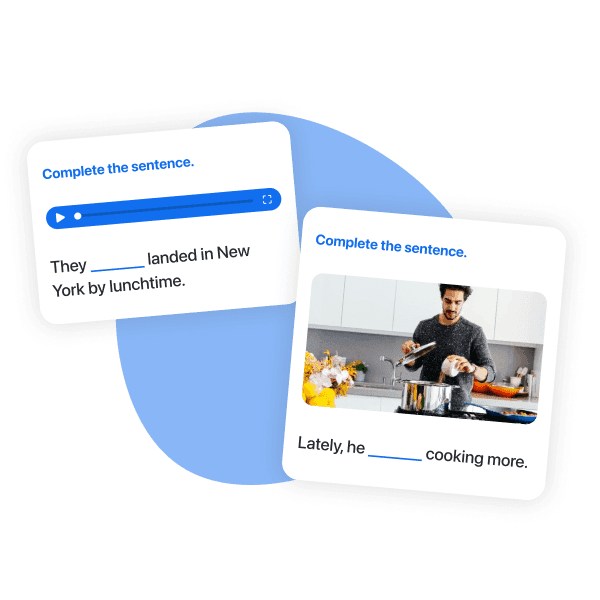
4. Do spaced-repetition reviews
Spaced repetition is a learning technique where you review words after increasing periods of time. The more often and consistently we see something, the more likely it is to stick. Contrast this to how people cram for tests for a week, only to forget everything after the test.
Spaced repetition is effective for memorizing vocabulary long-term. Here’s an example of how it can work. You learn a new word on Day 1. On Day 2, you review that word for the first time. On Day 7 you review the word for the second time. On Day 16 you do the third review. And on Day 32 you do the fourth.
There are tons of different spaced-repetition schedules, so experiment and find the schedule that works for you.
Check out Busuu’s Vocabulary Review tool. It keeps track of all the words you come across in your course and uses a spaced-repetition algorithm to help you remember them.
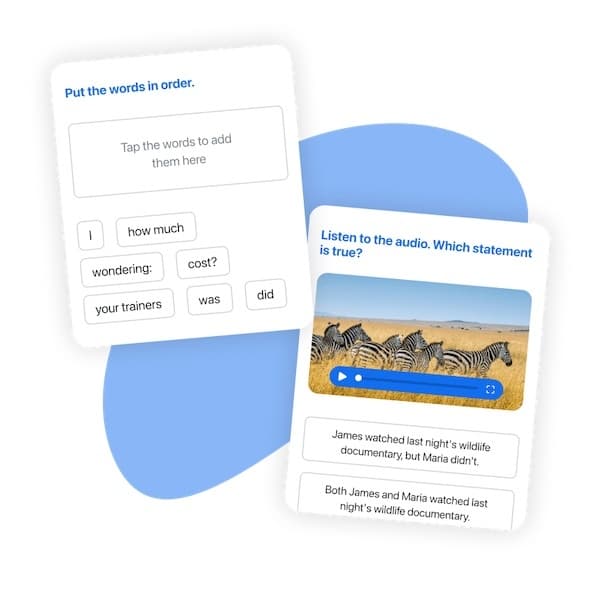
5. Learn a word a day
This is a simple – and easy-to-stick-to – way to learn new vocabulary. Learn one new word each day. That’s it. It doesn't sound like much, but if you do it every day it’s easy to see how it can help to develop your English vocabulary. Bonus points if you combine it with spaced repetition.
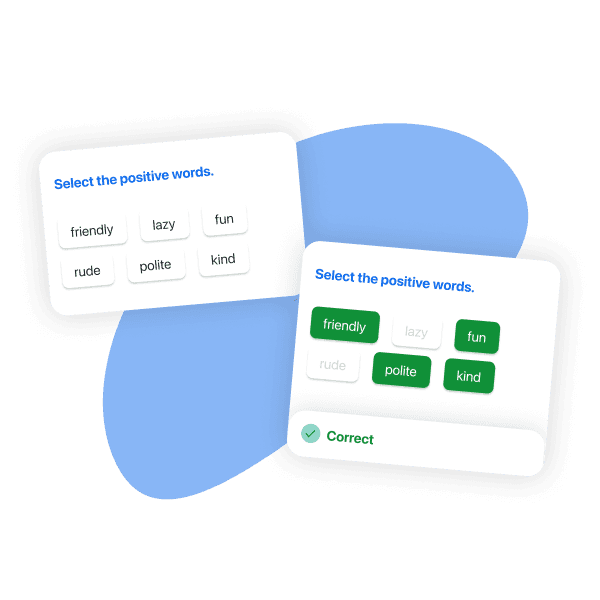
6. Keep a vocabulary journal
When you learn new words, write them down. It’s a simple and effective way of keeping track of the words you learn. So record new words, their definitions, their pronunciation, and example sentences. Also, add words with similar and opposite meanings. Make sure you review this journal regularly to reinforce your learning.
7. Use your new words
Add your new words to your daily conversations, emails, or social media posts whenever and wherever you can use them. This not only helps in remembering the word but also improves your confidence in using it.
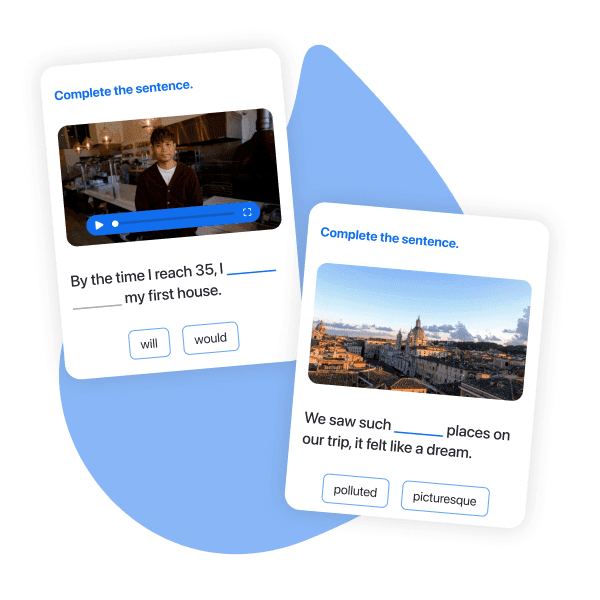
8. Write and apply
Struggling to think of how to practice new words? Well, writing is an excellent way to develop vocabulary. Write essays, keep a journal or even do creative writing. Just make sure to include the new words you learn. Research shows that written vocabulary activities are effective for vocabulary learning.
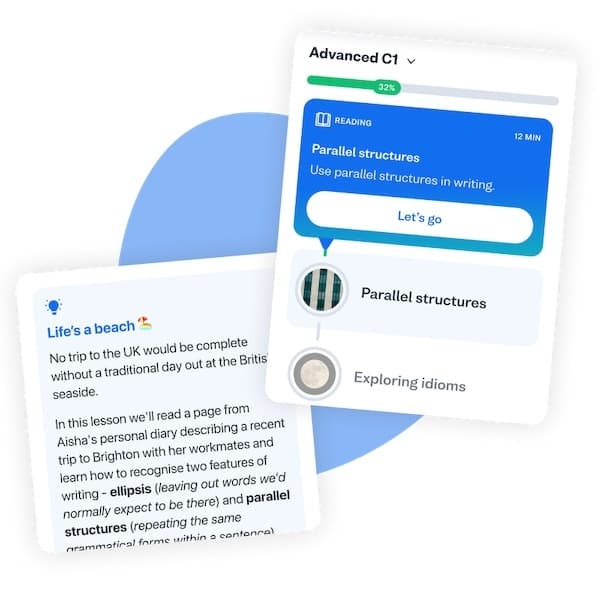
9. Talk and interact with people
Speaking with others is a good way of both practicing the new words you’ve learned and hearing new words, phrases, expressions or idioms. So get out there and interact in English!
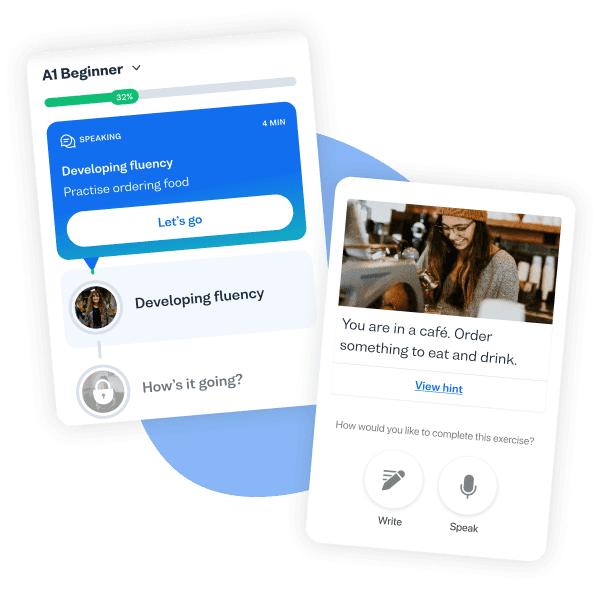
10. Use flashcards
People have used flashcards to learn vocabulary for decades – and with good reason. Flashcards are a proven tool for vocabulary learning. You can keep them in your pocket to review anytime. And if you use digital flashcards, they often use spaced-repetition algorithms to help you memorize the words.
11. Make the most of technology
Busuu’s Vocabulary Trainer keeps track of – and automatically saves – all the words you learn during your course. You can review them at any time and take quizzes to test your knowledge. The Strengthen Vocabulary feature focuses on words you got wrong in the past so you can address your weaknesses.
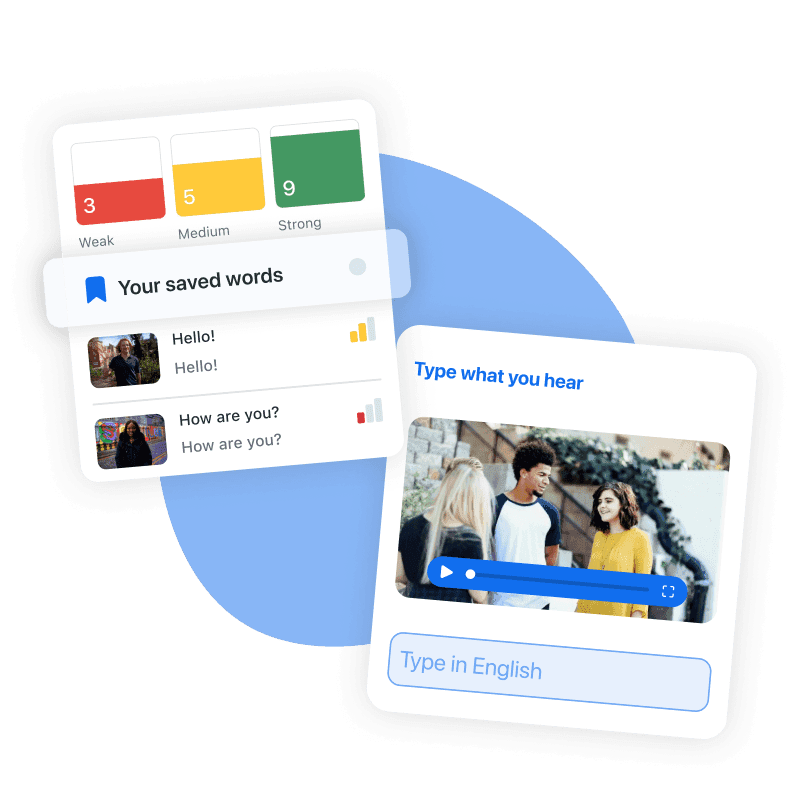
12. Teach your new words to other language learners
Sharing your knowledge reinforces your learning. Because to teach words, you need to think about them more deeply. So teach new words you learn to friends or family members. Or find people in the Busuu Community of millions of language learners and share what you’ve learned with them!

Why Busuu is the best place to learn English vocabulary
Community feedback
Busuu has a lively online community of millions of language learners and native speakers who support and help each other achieve their goals. You can get feedback on your vocabulary skills, practice speaking, and build connections with people around the world.
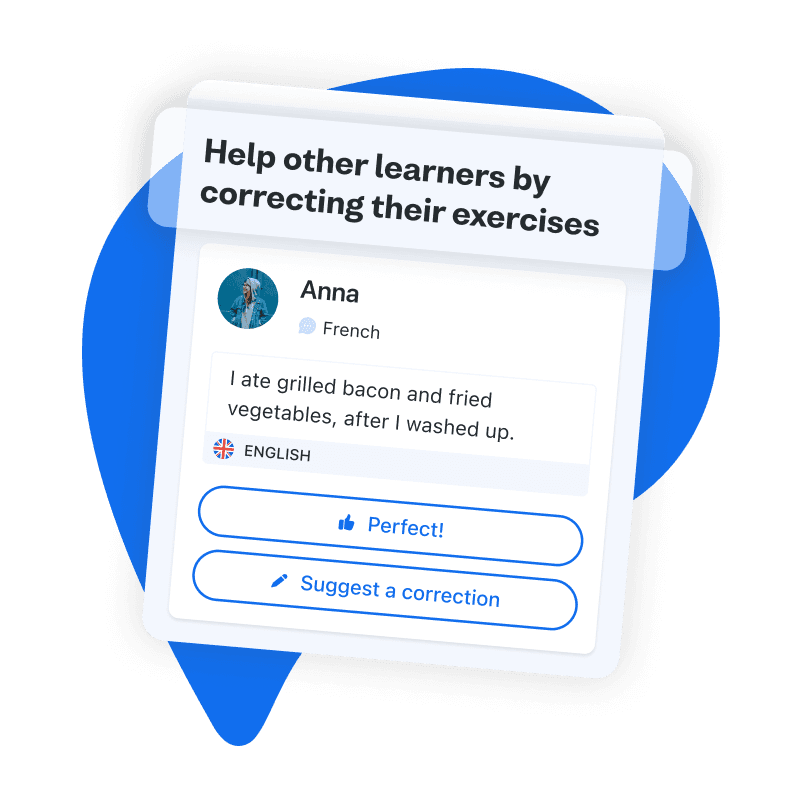
A habit you can stick to
The best learning method is one you can consistently do. There’s no magic shortcut to mastering English.
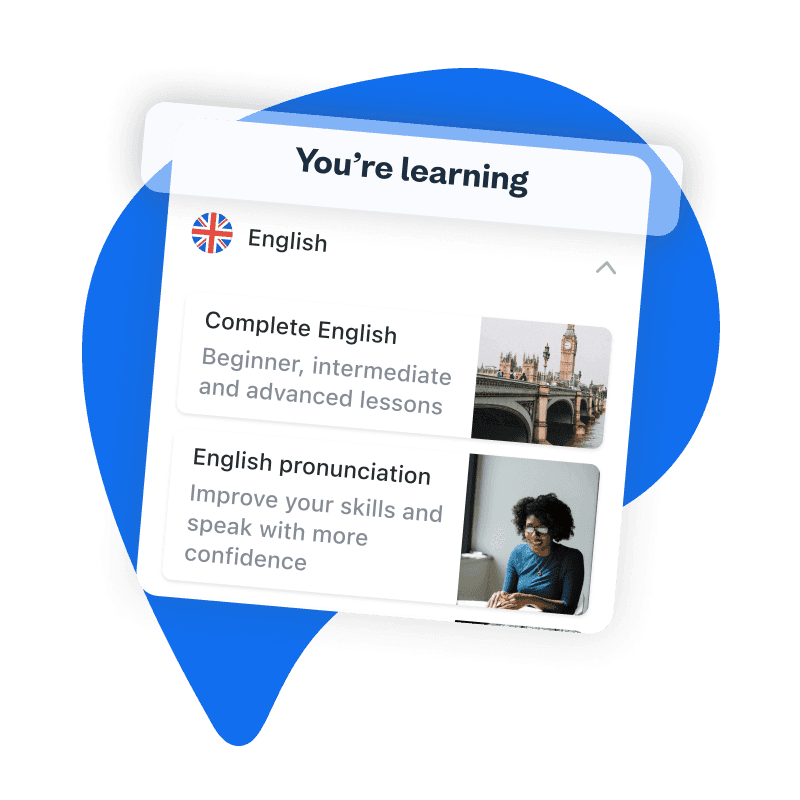
Support from advanced AI features
Busuu uses AI algorithms and spaced repetition to help you master English vocabulary. The algorithms know which words you’ve learned, which you use well, and which are still challenging. It uses this data to make sure you remember the words you’ve learned. Words that you use well appear less frequently in Vocabulary Review – there’s no point spending much time reviewing words you’ve already mastered. But the words you struggle with appear more frequently. So you get more chances to finally remember them.
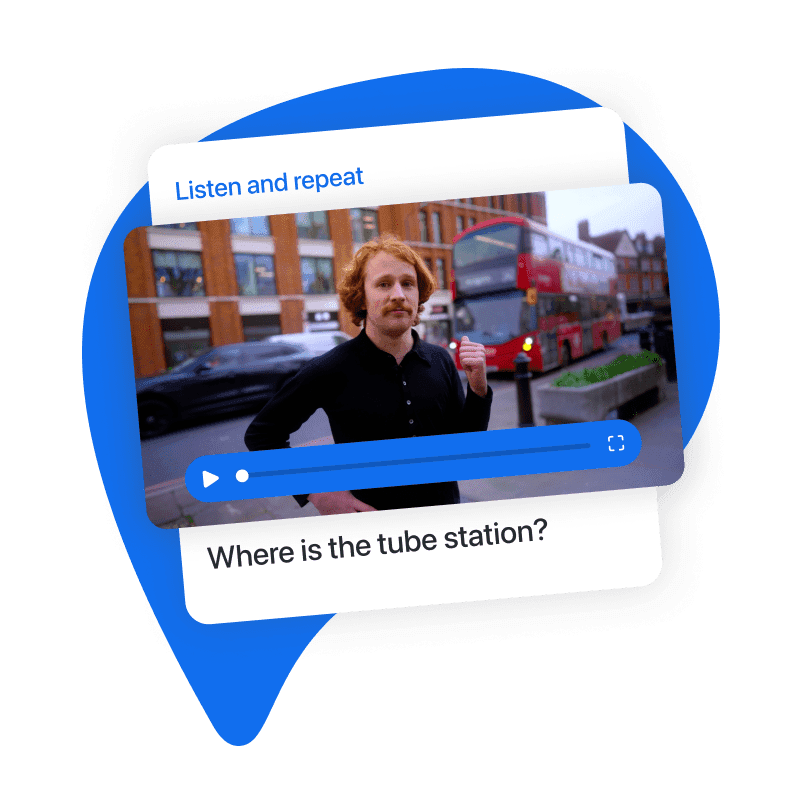
English vocabulary learning resources on Busuu
Busuu’s Complete English, English for Business, and English for Travel courses mean that you can achieve your goals, no matter what they are. Learn English vocabulary you can use in any situation with Busuu.
Busuu has something for all levels. You can learn basic English vocabulary for describing yourself, intermediate vocabulary essential for traveling, and (when you’re ready for the challenge) advanced English vocabulary for business and academic use. Busuu has English courses from beginning (A1) to advanced (C1) levels, so you’ll always have new and challenging English vocabulary to learn.
But learning English vocabulary isn’t all about lessons and studying. With Busuu, you can connect with a worldwide online community of language learners and native speakers to practice with. Share your English, get support and feedback, and make progress.
Learn English vocabulary today with Busuu
Building a wider English vocabulary boosts your confidence and communication skills and can lead to professional, academic and personal success.
English vocabulary is huge – there are thousands and thousands of words to learn. But by following the tips in this article and studying on the Busuu app, you’ll be well on your way to having an English vocabulary to be proud of.
Want to learn more English vocabulary to use for work or your studies?
Continue learning more vocabulary in English that you can use in your daily life, via Busuu’s Complete English Course or English for Business Course, together with the support of millions of learners and native speakers in the Busuu community.
AUTHOR

Barney Meekin
Newlanguages

